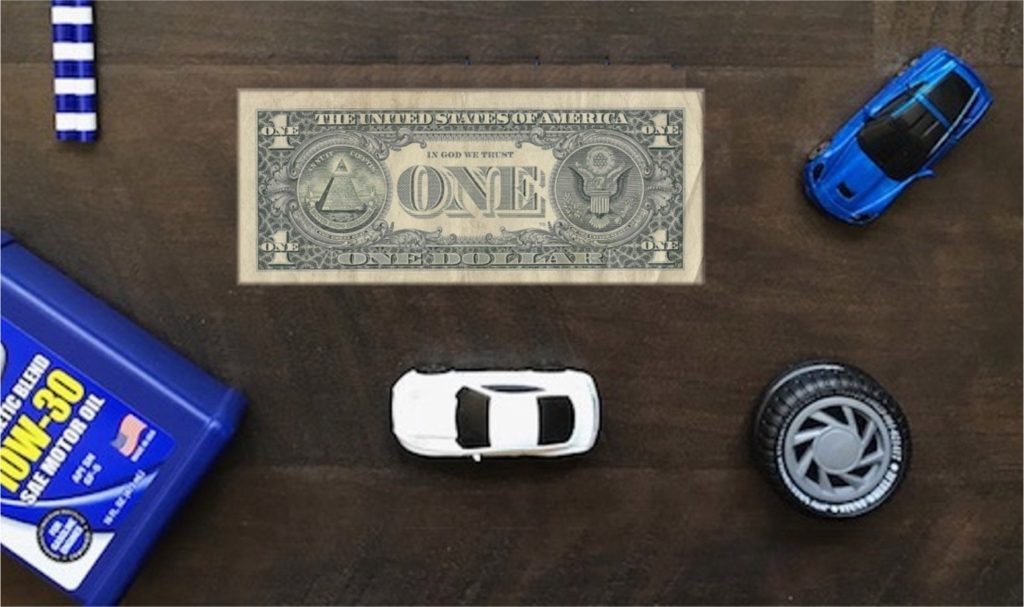Guest Post by Bill Springer
Not so very long ago, new car dealership service directors could count on seeing their customers for car maintenance services multiple times per year. Between the occasional warranty related repair and three or four oil changes, dealerships were able to keep their service bays full, their technicians busy, and their bottom lines healthy. Needless to say, the rate of change today is faster than ever before.
As vehicle quality continues to improve, warranty revenue remains in decline. Adding to the challenge, those three or four oil change visits may now very well be only two (or less) visits per year, making the 3,000 mile/ three month oil change visit a relic of the past. The good news is that new car dealerships have distinct competitive advantages over all other car maintenance services providers in the marketplace. Educating your customers about scheduled maintenance, providing additional value-added benefits to ensure customer loyalty, and implementing a comprehensive multi-point inspection process will help ensure that your dealership service department remains the exclusive provider of each of your customer’s car maintenance services needs.
Educate Your Customers
Clearly, car maintenance services schedules vary by manufacturer, driving habits, and local driving conditions. For illustrative purposes, let’s assume that a dealership is challenged with transitioning its customers from a 3,000 mile/ three month oil change service to a 5,000 mile/five month scheduled maintenance service. Typically, this service includes an oil change, tire rotation, and comprehensive inspection. The first step in a successful transition is to educate the customer about exactly what is done as part of the scheduled maintenance service as compared to a simple oil change. A well informed customer is much more likely to be a completely satisfied customer who returns again and again to the dealership for car maintenance services. Without this understanding, a customer could conclude that they purchased an “expensive oil change” rather than a comprehensive maintenance service.
Provide Value-Added Benefits That Renew Upon Returning for Service
As part of the new car delivery process, a “best practice” of many new car dealers is to review the maintenance schedule with the customer. Dealers such as Gordie Boucher Lincoln Mercury in West Allis, Wisconsin, are taking it a step further by including additional value-added benefits that automatically renew when a customer returns to the dealership for their scheduled maintenance service. Each 5,000 mile scheduled maintenance service performed at Boucher includes 180 days of complementary nationwide emergency roadside assistance, rental car coverage, and road hazard tire protection. “The Boucher Customer Protection Plan is something that differentiates us from the other guys”, explains John Rothe, Service Manager. “Our sales reps explain that coverage is good for 180 days from the day they buy the car, and that it automatically renews for another 180 days when they return for scheduled maintenance service. Our service advisors preach the message, it helps us sell more scheduled maintenance services, and our customers love it that we’re looking out for them.” Rothe feels that the benefits of the Boucher Customer Protection Plan have been crucial in adding value to his scheduled maintenance services and keeping his customers out of aftermarket service providers, especially tire retailers.
When choosing a vendor to partner with on these value-added programs, make sure they are experienced in the administration, promotion and execution of these programs. For example, when you consider the fact that 96% of Americans now own a mobile device, vendors that have the capability to promote value-added benefit plans via automatic push notifications and alerts to a customer’s mobile device are thinking long-term about how to use technology to further your priorities.
In addition, choose a vendor that serves exclusively new car dealerships, as you don’t want your local aftermarket competitors to be able to offer your customers the same programs.
Share Inspection Results with the Customer
Rothe also makes extensive use of the Multi-Point Inspection form to sell brakes, batteries, wipers, headlights and especially tires. His Service Advisors and Technicians utilize this form with every service customer, and Rothe feels it has been instrumental in maximizing service revenue, satisfying customers and protecting the dealership’s relationship with the customer. This simple yet highly effective process results in additional sales of important safety items that would otherwise be forgotten by the customer or overlooked by the advisor or technician. For example, a recent study conducted by a wiper blade manufacturer found that wiper blades are replaced on average only every three years, despite the recommendation by most manufacturers to replace them every six months. Most customers don’t think about their wiper blades until they malfunction. Your customers will appreciate you bringing this important safety item to their attention. The technician should also perform a comprehensive inspection of other safety components such as brakes, shocks, struts, etc. once the wheels are off. A recent study concluded that 37% of dealership parts and service revenue is conducted “around the wheel” and that this figure was expected to grow as maintenance revenue from other sources continue to decline.
The Multi-Point Inspection process also helps raise awareness that your dealership is in the tire business. The importance of keeping customers out of tire stores and returning to the dealership for tires was underscored in a study that found that 75% of customers will purchase tires from the first person who recommends them. That same study found that 90% of customers who purchase tires somewhere other than the dealership will never return to the dealership for maintenance service again! By leveraging Multi-Point inspections and providing value-added benefits such as short term road hazard coverage that highlight the dealerships ability to address customers’ tire needs, your dealership will be in an excellent position to retain your service customers for all of their automotive service needs.
Bill Springer is President of Krex, Inc., a provider of customer retention solutions to new car dealerships headquartered in Northbrook, Ill. He can be reached at [email protected], or 847-753-9955

